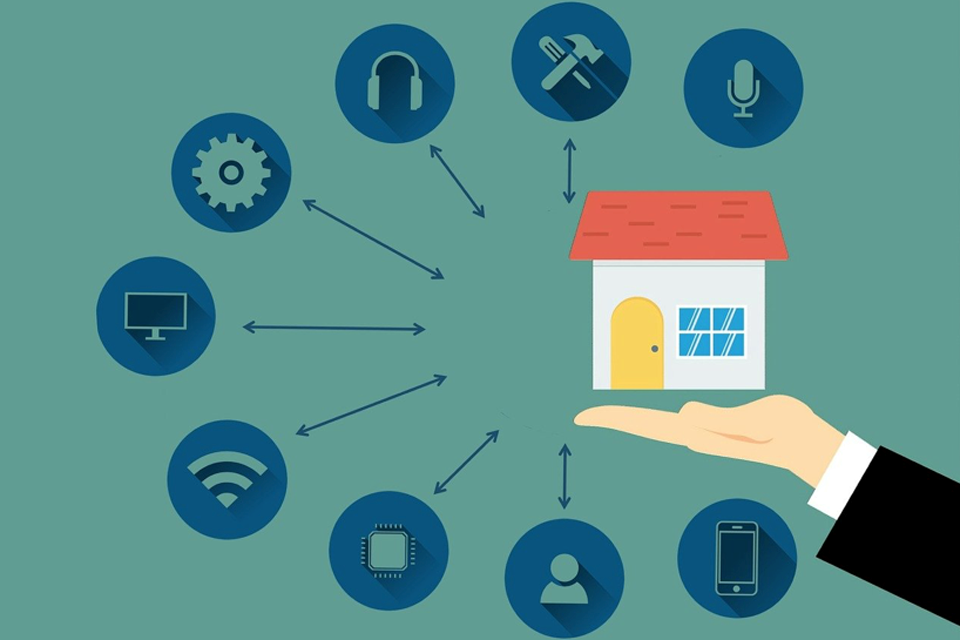Home security has come a long way from the traditional lock and key. With advancements in technology, protecting your home has never been more accessible and intuitive. From smart locks to AI-powered surveillance systems, there are now numerous ways to keep your home safe. We've gathered some of the best and latest innovations in home automation and security systems that you can purchase in Canada.
TELUS SmartHome Security
TELUS SmartHome Security has been a trusted name in the industry for over a decade. With the aim of making life easier through customized tech, TELUS SmartHome systems can include 24/7 camera monitoring with the latest video analytics. The cameras can automatically identify people, animals and vehicles and allows you to set virtual trip lines and cloud recording. The cameras are professionally monitored. Automated lights, heating and appliances help you save on energy costs, as you can “set it and forget it” when it comes to these devices. Worried about your home when on vacation or at work? TELUS SmartHome has you covered with notifications and alerts. Be it a flood, fire, break and enter, or even a door left open for an extended period of time, you can get an alert set right to your phone. It’s all accessible from a touchpad and an app. This is worry-free home security at its finest.
Frontpoint Security
Frontpoint Security is another top contender for home automations. It's DIY-friendly, meaning you can install and set up the system yourself. Their product line includes smart locks, thermostats, cameras, and lighting systems.
WiFi Sensing
A significant innovation in home security is WiFi sensing. This technology uses the existing WiFi signals in your home to detect movement and activity. It's a great option for those who want a less invasive security system.
Smart Home Automation Features
These include smart doorbells, locks, cameras, thermostats, lights, and smoke alarms. Each of these devices can enhance the security of your home and can be controlled remotely using your smartphone. For those that do not want a whole system, but want individual components, this is an excellent choice. You can buy components at home building stores or online on sites like Amazon. Always ensure the product is safe and rated for Canada before making a purchase.
Safety Considerations
With the advent of WiFi-connected and AI home security systems, homeowners have access to advanced tools for keeping their homes safe. However, these systems also introduce potential vulnerabilities that could be exploited if not properly managed. Here are some safety considerations to keep in mind:
Secure Passwords and Authentication: One of the primary risks associated with smart home security systems is the use of weak or no passwords. It's crucial to set strong, unique passwords for all devices and change them regularly. Also, where possible, use two-factor authentication for an added layer of security.
Encryption: Data encryption is another vital security aspect. Ensure your devices and network connections employ robust encryption methods to protect your data from interception or tampering.
Regular Updates: Keeping your devices updated is essential for maintaining their security. Manufacturers often release software updates to fix known vulnerabilities, so it's important to install these updates promptly.
Device Loss: Lost devices can pose a significant security risk as they might contain sensitive data. Implement measures to remotely wipe or lock lost devices to prevent unauthorized access.
Geofencing: Geofencing is a feature that uses WiFi, GPS, or cellular data to detect when something enters or exits a designated area. While it can enhance security, it may also be exploited if not properly secured.
Data Breaches: Smart home systems are potentially vulnerable to data attacks. It's crucial to understand what data your devices collect and how it's stored and protected.
Physical Connections: Consider whether to opt for wired or wireless security systems. Wired systems use physical connections to transmit data, which can offer greater security but may be more challenging to install.
Potential Hacking: While any connected device is potentially hackable, this doesn't mean it's inevitable. Implementing robust security practices can significantly reduce the risk.
WiFi-connected and AI home security systems can provide enhanced safety and convenience, they also require careful management to mitigate potential risks. Always invest in systems from reputable manufacturers and ensure you understand how to use and secure them properly.
Smart Shopping, Smart Home Security
Home security systems and technology have evolved significantly over the past decade. Most of today's systems are wireless, incorporating advanced features that offer homeowners greater control and peace of mind. With a range of options from DIY to professionally installed systems, there's a solution to suit every need and budget. When you rely on professional advice, review data collection protocols, and shop smart, your home security will protect you and your peace of mind.
This article was written for the Airdrie House & Home feature, brought to you by Great West Media and by the Sponsors on this page. It is not written by and does not necessarily reflect the views of the editorial staff.



